Austin Veterinary Clinic Services
Whether your pet needs vaccinations, medical treatment or surgery, our animal hospital is here to help you.
Over the years pets have become more than just animals; they are members of our families. Proper care is essential for our dogs and cats to live a long and happy life. We recommend annual examinations to help detect medical conditions that may devastating effects on your companion if left alone. Most of the time pets are just fine, but when there is a problem the veterinarian is the person to see.
Details of Services
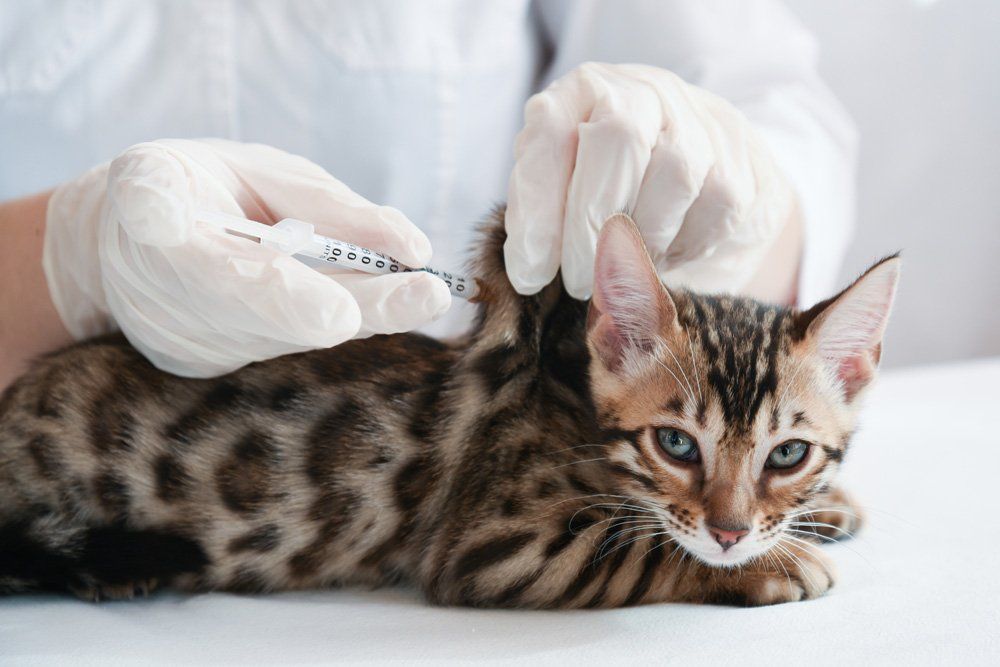
Puppies and kittens can be quite a handful! In addition to any training you give them, they need several sets of vaccinations to protect them from harmful diseases. Testing for intestinal parasites (a worm check) is necessary for your safety and that of your pet. We can treat most parasites that your new puppy or kitten may have very easily. You can look at our Puppy Visits and Kitten visits pages for a more detailed schedule of visits.
Annual visits, while sometimes difficult to plan, are very important for your pet. During this visit you can discuss any concerns you have with the veterinarian while your pet is given a physical exam. Yearly testing for intestinal parasites is must to keep your pet and family safe. Annual testing for heart worms makes sure our dog patients have not contracted these parasites. Our veterinarians will recommend vaccinations, heart worm prevention and flea/tick control according to your pets needs.

The term “spay” refers to an ovariohysterectomy- the removal of the ovaries and uterus. The term neuter can actually refer to an ovariohysterectomy, but commonly refers to castration- the removal of the testes. We recommend spaying and neutering puppies between 4 and 6 months of age, but the procedures can be performed in pets of all ages.
Spaying and neutering provides significant health advantages for your pet. Un-spayed female dogs have a 25% chance of contracting cancer, with 1/2 being malignant tumors. Dogs spayed before their first heat cycle have less than a 0.5% chance of developing breast cancer. After 2-3 heat cycles there is little additional benefit from spaying for preventing breast cancer. Cats are also prone to breast cancer, but have a much higher rate of malignancy – about 85-95%.
Pyometra is a uterine infection common in middle age un-spayed female dogs and sometimes cats. It typically occurs about 30 days following a heat cycle. Hormone changes at that time make the uterus susceptible to bacterial infection. The uterus fills with pus and can become quite large. The uterus could potentially rupture and cause serious, possibly fatal abdominal infection. The cases are emergencies and require urgent and expensive medical and surgical treatment. Pyometra can be prevented by having your pet spayed. It is much better to have surgery performed on a healthy young pet than one that is older and sick.
Some pregnancies result in dystocia or difficult birth and require Cesarean section to save the lives of the mother and babies. These are emergencies and need to be done as soon as possible. The procedure can be expensive, especially when it must be done after hours as many do.
Neutering male dogs prevents testicular cancers, benign prostatic hyperplasia and some prostatic cysts that occur in older un-neutered dogs. It also prevents or reduces the urge to roam in search of a mate that results in dogfight wounds (which can be extensive), being hit by a car/truck, various other injuries, and getting lost. Neutering male cats prevents the development of the very strong tomcat urine smell, reduces urine spraying and fighting (which commonly causes abscess formation).
Spays and neuters are common procedures and are performed nearly every day in our clinic. There is always some risk, but serious complications are rare. Most pets are up and around the next day with some soreness for a few days afterward. Pain medication is available to ease the recovery period.
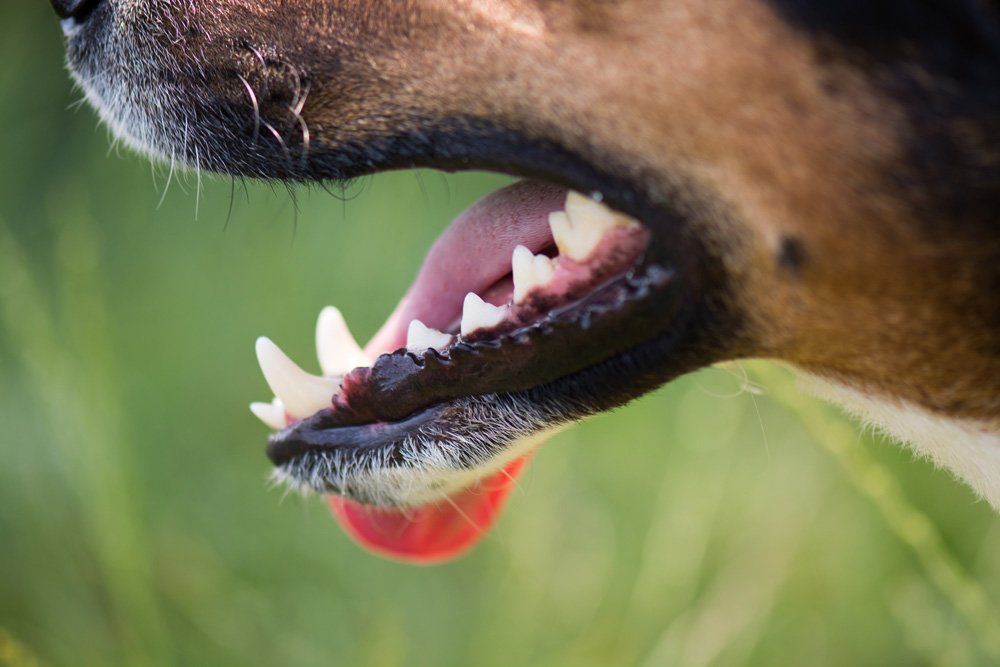
Does your best friend have bad breath? Despite what many pet owners may believe, “dog breath” is not just a nuisance – it’s a sign of an unhealthy mouth. Bad breath is caused by bacteria. Over time, bacteria lead to plaque and tartar buildup on your pet’s teeth. The result is bad breath, reddened gums, and other common signs of dental disease.
Signs of Dental Disease
If your dog has bad breath, it’s likely he also has dental issues. Besides nasty breath –caused by bacteria – signs of canine dental disease include:
- Appetite loss
- Chewing Problems
- Depression
- Drooling
- Growths in the mouth
- Loose or missing teeth
- Pawing at the mouth
- Red, swollen gums
While any dog may develop dental disease, certain dogs are more prone to serious teeth and gum issues than others. These include small dogs, which have the full set of 42 teeth in tiny mouths, and the short-nosed “brachycephalic” breeds, such as bulldogs, boxers and Pekingese.
Dental disease develops over time, as the bacteria in leads to plaque and tartar buildup on your pet’s mouth. By the age of 3, most dogs –and cats – have some plaque and tartar buildup if they have not received dental care. In fact, periodontal, or gum disease, is the most common clinical condition among both dogs and cats, according to the American Veterinary Dental College.
Teeth Cleaning
You know the importance of good dental care, and make sure you and your family visit the dentist regularly. Your dog’s teeth also need periodic checkups and cleaning. Our Austin veterinary clinic provides a full range of dental care for dogs. Infected bad teeth can lead to other issues, including heart, kidney and liver disease as the infection spreads throughout the body. Your best friend can live a longer, healthier life with regular dog dental care.
We’ll carefully examine your dog’s teeth and gums. If your dog requires a teeth cleaning, we’ll schedule an appointment. Before the cleaning, we give your dog a blood test to identify any underlying issues. Teeth cleanings require sedation, but it is a very safe procedure. We use an ultrasonic scaler to take off larger pieces of plaque and tartar, then clean every tooth and under the gum line with a hand scaler.
Even if you think your pet’s teeth and gums are fine, we can offer expert advice to help you keep them that way. Dental health shouldn’t be taken for granted. Fortunately, many dental problems can be managed through at home care and by bringing your pet to us for regular dental checkups and teeth cleanings. We want your pet to live a long, healthy life, and we understand that maintaining a healthy mouth is part of that.
We want your pet to live a long, healthy life, and we understand that maintaining a healthy mouth is a part of that. Your pet’s health is important to us, so let us help you with this commitment. Call today and discuss your pet’s dental care needs and how we can help you!
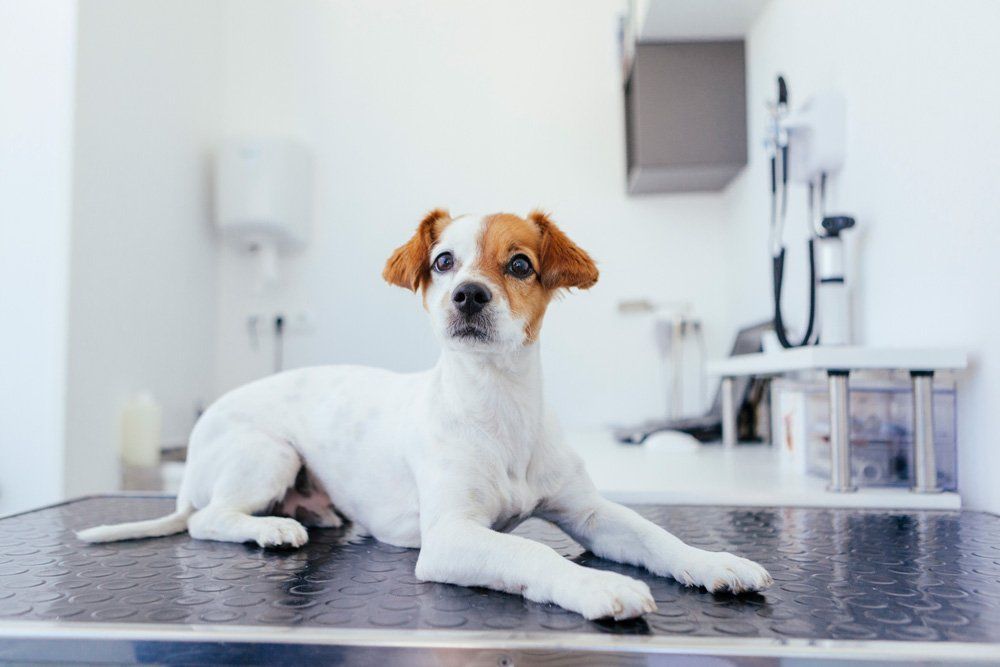
Laboratory testing is a valuable tool that is used in a wide variety of diagnostics in veterinary medicine. At Pet & Bird Clinic, we continually strive to offer the highest-quality medicine and services to our customers and their pets. Therefore we are proud to offer our in-house diagnostic laboratory services as an additional means of providing excellent and convenient care to our patients.
Over the years of caring for your pets, you find that there are many important diagnostic tests can only be performed by outside laboratories. In other instances, though, some tests can be performed at our in-house veterinary diagnostic lab. Having access to accurate test results obtained using our in-house veterinary laboratory can provide our veterinary care team with the information they need to better serve your pets’ needs by expanding the testing options available to all our patients.
Pet & Bird Clinic made the decision to offer veterinary diagnostic lab testing in Austin to provide another layer of services to our valued clients and their pets. When it comes to treating your pet accurately, time is often of the essence. By providing veterinary diagnostics tools, such as an in-house vet lab, we can provide you with the answers you have been anxiously waiting. These answers can facilitate better management of your pet’s care and condition.
Here at Pet & Bird Clinic, we are eager to answer any questions you might have about the diagnostic testing services we offer. Be sure to ask one of our skilled professionals how our laboratory services can benefit your pet the next time you are in our office. Alternatively, you can also call us or contact us using the form on our website and ask your questions at that time.
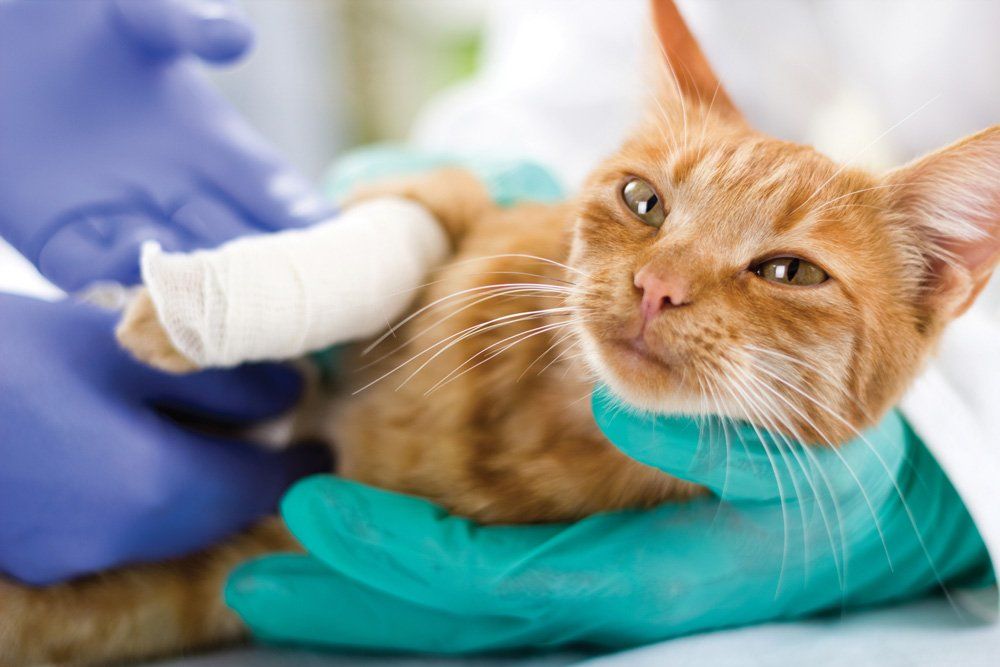
When your dog or cat needs surgery, it can be a challenging time. At our pet surgery center in Austin, we offer a wide variety of surgical services, both routine and more complex. Needless to say, we provide high quality spay and neuter surgeries, but we can also deal with complicated surgeries and emergency situations. We look forward to the opportunity to care for your pet and help keep them in the best health.
Prior to recommending a surgical procedure, we’ll evaluate your pet and determine whether a less invasive (and cheaper) course of treatment could be used. We will discuss all your options and only proceed when you are sure we are doing the right thing for your dog or cat.
We use only the most current surgical practices and focus on patient safety and pain management. Your pet will be monitored before, during, and after surgery by our compassionate, caring and professional staff. If you have questions, we can address them before surgery – you may want to know more about anesthesia, pain management, and of course the post-surgical care your pet will need. We’re happy to help you understand more about the procedure and will help you feel comfortable with the recommended treatment.
After surgery, we will review postoperative care and medication instructions again before your pet goes home. On top of that, if you have questions after leaving, please feel free to call us. We want to make sure your pet recovers fully and returns to normal activity and function, so our help is only a phone call away. If your pet appears to be restless, uncomfortable, or in pain call us – we can help get things back on track.
Whether your pet needs a routine operation or something more complicated, contact us for a consultation. Let us discuss how our surgical services can help your pet return to a normal and healthy quality of life.
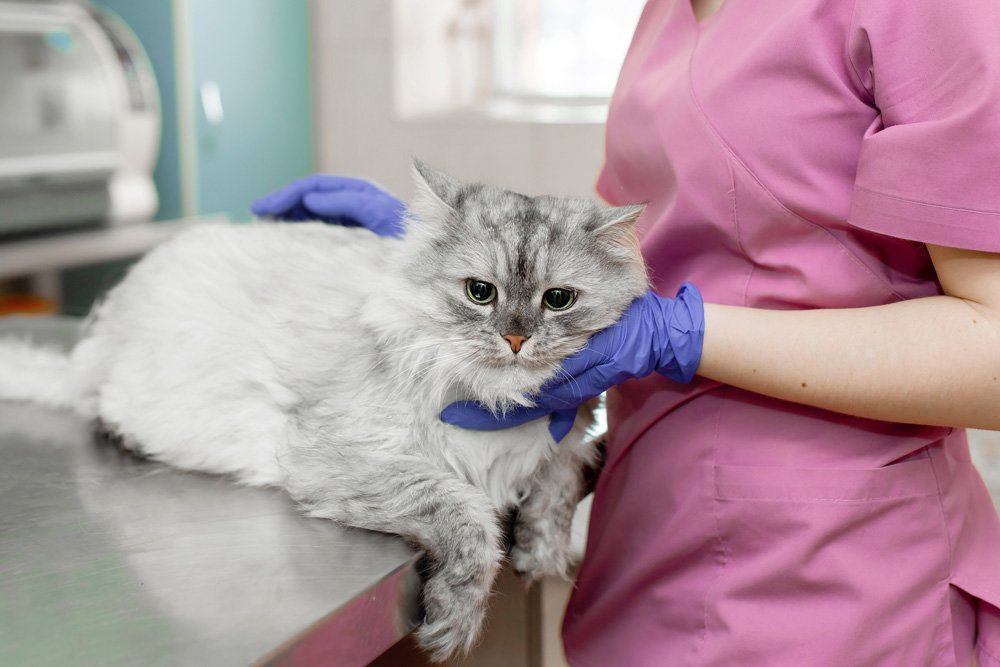
What is Veterinary Internal Medicine?
Simply said, we take care of all the inside parts of your pet! We work with the internal body systems, whether there are sudden or chronic signs, and regardless of the cause of disease (infection, cancer, degenerative, inflammatory, immune, or trauma). Internal medicine emphasizes non-invasive diagnostic and treatment techniques. At Pet & Bird Clinic Veterinary Internal Medicine, our strengths are medical treatments and comprehensive care, devoted to your pet’s overall health.


